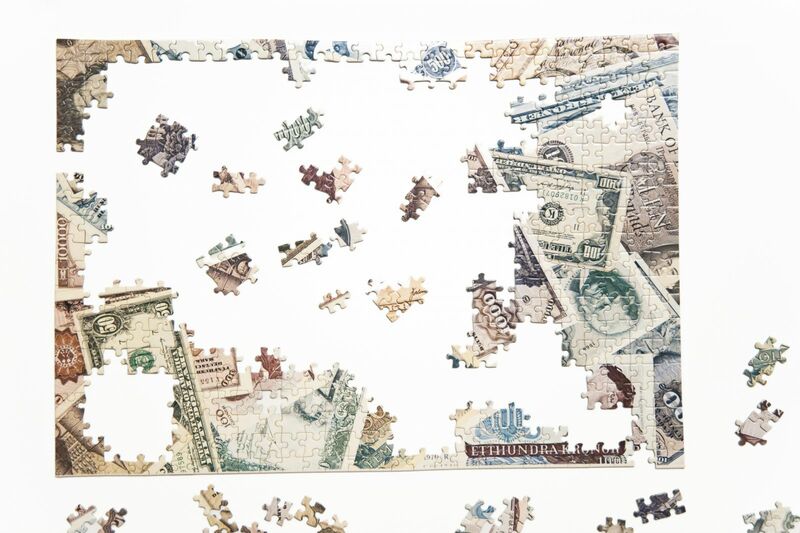
The dollar index (DXY00) on Friday finished little changed, down by -0.01%. Friday’s rally in the S&P 500 to a new record high curbed liquidity demand for the dollar. Also, lower T-note yields on Friday undercut the dollar. Comments from New York Fed President Williams were negative for the dollar when he said he expects consumer spending growth to slow this year. The dollar has support from lowered expectations for Fed rate cuts as the chances for a Fed rate cut at the April 30-Mai FOMC meeting dropped to 23% from 75% a month ago.
New York Fed President Williams said he expects consumer spending growth to slow this year and "at some point, it will be appropriate for the Fed to pull back on restrictive monetary policy, likely later this year."
The markets are discounting the chances for a -25 bp rate cut at 2% for the March 19-20 FOMC meeting and 23% for the following meeting on April 30-May 1.
EUR/USD (^EURUSD) on Friday fell slightly by -0.02%. On Friday, the euro gave up an early advance and posted modest losses on dovish comments from ECB President Lagarde and ECB Governing Council member Centeno. Lagarde said the latest Eurozone compensation numbers are “encouraging,” and Centeno said the ECB must be ready for an interest rate cut in March.
On Friday, the euro initially moved higher on hawkish comments from ECB Governing Council members Nagel and Simkus, who gave the euro a boost when they said they favored waiting before cutting interest rates. An increase in ECB inflation expectations and the German Feb IFO business climate also supported EUR/USD.
ECB Governing Council member Centeno said the ECB must be ready for an interest rate cut in March, even if not likely, as downside risks to inflation and growth have materialized.
ECB Governing Council member Simkus said, "I think that we'll see the positive developments on wages and inflation that would allow the ECB to move into the less restrictive area in the summer of 2024."
ECB Governing Council member and Bundesbank President Nagel said, "Even though it may be very tempting, it is too early for the ECB to cut interest rates because the price outlook is not yet clear enough."
The ECB's Feb 1-year inflation expectations rose +0.1 to 3.3% from 3.2% in Jan. The Feb 3-year inflation expectations were unchanged from Jan at 2.5%, higher than expectations of a decline to 2.4%.
The German Feb IFO business climate rose +0.3 to 85.5, right on expectations.
Swaps are pricing in the chances for a -25 bp rate cut by the ECB at 2% for its next meeting on March 7 and 34% for the following meeting on April 11.
USD/JPY (^USDJPY) on Friday fell by -0.03%. The yen on Friday recovered from a 1-week low against the dollar and finished slightly higher. Short covering emerged in the yen on Friday after T-note yields declined. The yen was initially under pressure Friday as strength in stocks reduced safe-haven demand for the yen. Friday's trading activity in the yen was on the light side as Japanese markets were closed for the Emperor’s birthday holiday.
Swaps are pricing in the chances for a +10 bp rate increase by the BOJ at 29% for its next meeting on March 19 and 78% for the following meeting on April 26.
April gold (GCJ4) on Friday closed up +18.70 (+0.92%), and Mar silver (SIH24) closed up +0.198 (+0.87%). Precious metals on Friday shook off early losses and rallied, with gold climbing to a 2-week high. Weakness in the dollar on Friday was bullish for metals. Also, lower global bond yields on Friday were supportive for precious metals. In addition, the ongoing geopolitical risks in the Middle East and Ukraine have boosted safe-haven demand for precious metals.
On the negative side for precious metals was Friday’s rally in the S&P 500 to a new record high, which curbed safe-haven demand for precious metals. Also, gold remains under pressure from the ongoing long liquidation of gold by funds after long gold holdings in ETFs fell to a 4-year low Thursday. The ongoing housing crisis in China is bearish for silver prices after China Jan new home prices fell -0.37% m/m, the eighth consecutive monthly decline and a negative factor for industrial metals demand.
On the date of publication, Rich Asplund did not have (either directly or indirectly) positions in any of the securities mentioned in this article. All information and data in this article is solely for informational purposes. For more information please view the Barchart Disclosure Policy here.






